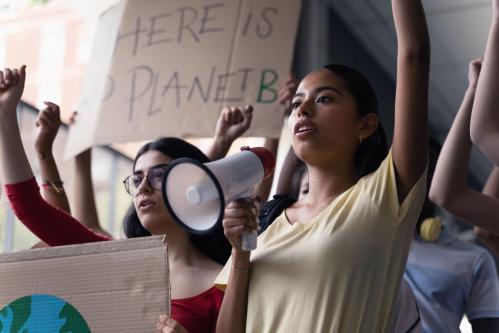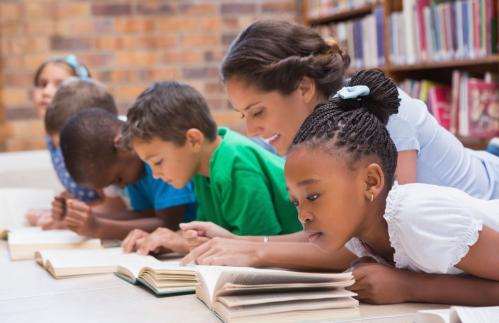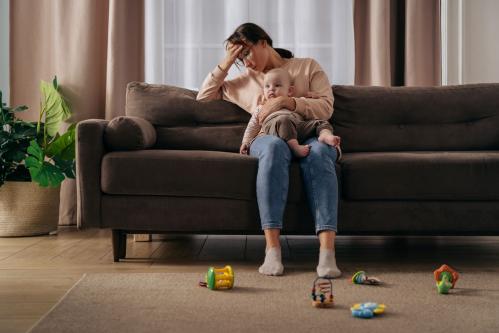Public schools were invented to prepare people for self-governance, and to work with others towards the improvement of their communities and for the betterment of society. These were the arguments Horace Mann used, in the 1830s, when he led a successful advocacy campaign to launch public education in Massachusetts. Since then, schools in America have in many ways provided students the capacities necessary to engage civically, to collaborate with others, across lines of difference, in making society better.
As American democracy has evolved, so have the ways in which schools embrace their civic mission. For much of their history, our public schools did not hold women and men to similar expectations, nor did they adequately educate African Americans and other ethnic minorities. It was only when social movements, such as the women’s movement and the civil rights movement, broadened our collective understanding of who should be included in the opportunity to participate in this democratic experiment of self-rule, that schools, in turn, broadened their focus to prepare women and minorities for civic engagement and leadership. Of course, schools have not only reacted to the development of our democracy, they have also anticipated such development, at times creating opportunities for students to learn to imagine a society which is more inclusive than the one they experience in their communities.
There are, 242 years since the Continental Congress adopted the declaration that would begin this hopeful experiment in self-rule, signs that the experiment is not flourishing as much as the declaration of independence had anticipated. Large numbers of Americans do not participate in our politics, register to vote, or vote or register in political parties. Mistrust in political institutions is growing and common ground to help us address the challenges the nation faces is elusive. While it is easy to focus on the deficiencies of the executive or of Congress, the challenges run deeper than that. Too many Americans seem to be prepared to follow those who decry the institutions of government, or our political parties, which is to say the institutions on which our democracy depends. The deficiencies of our political parties, Congress, or legal system will not be corrected by abandoning them in favor of messianic leaders who promise, “Just trust me,” as Benito Mussolini, Adolf Hitler, or other populist leaders did in the past. The growing populist movement that has hijacked contemporary American politics, and the growing signs of intolerance that have been reported by organizations such as the Southern Poverty Law Center or the Anti-Defamation League, are signs that our democracy may be at risk.
Is Democracy Dying?
The most recent Foreign Affairs issue asks, Is Democracy Dying? This reflects a question and concern increasingly asked in academic and political circles in response to the recent wave of elections around the world in which populist leaders with un-democratic views were elected.
Seventy-one countries suffered declines in political rights and civil liberties, while only 35 experienced gains. This makes 2017 the 12th consecutive year in decline in global freedom.
The most recent Freedom House survey on the state of democracy around the world concludes that democracy faces its most serious crisis in decades as its core tenets: free and fair elections, rights of minorities, freedom of the press and the rule of law, are under attack around the world. Seventy-one countries suffered declines in political rights and civil liberties, while only 35 experienced gains. This makes 2017 the 12th consecutive year in decline in global freedom. The report indicates that the U.S. retreated from its traditional role as a champion and exemplar of democracy as political rights and civil liberties decline in the U.S.
How education can help advance democracy
The global democratic setback is the most severe since the end of World War II. Several leaders of thought and of practice have warned of the risk of the rise of fascism, including former U.S. Secretary of State Madeleine Albright, University of Michigan Professor Ronald Inglehart, and Harvard Professors Steve Levitsky and Daniel Ziblatt in their recent book How Democracies Die. In response to these warnings about the risks to American democracy, some have argued that American institutions are exceptionally strong and that we will, in the end, withstand the obvious present challenges. Whether we do or not, however, will depend not just on what political elites do, but on what ordinary people do, on how they make sense of these challenges, on how they engage with political institutions, on their capacity to join with others, to find common ground, so we can, together, build a more perfect union and advance the Common Good. Whether people are capable and disposed to do this rests, today as it did when Horace Mann made the case for public education, squarely on what educational institutions do.
Schools and universities can help advance American democracy in four ways:
- Educating all students well, and in this way provide all people opportunities to develop their reason and the capacities which will enable them to gain autonomy and to participate in the society.
- Providing students an opportunity to learn about others who are different than themselves, and to recognize similarities as well as appreciate differences, so they can develop the dispositions and the capacity to collaborate with others in a diverse democracy.
- Providing students knowledge and appreciation about the institutions and norms that govern democratic life: the constitution, the division of powers, the rights and duties of government and citizens.
- Helping students gain the competencies to participate in the democratic process, not only participating in elections, but also engaging in the many forms of civic duty and service which make democracy a way of life. This idea stems from the recognition that democracy requires more than formal participation in elections and acceptance of the institutions of democracy, it requires active engagement from citizens, an active civil society that participates regularly in the project of societal improvement.
In a forthcoming book, titled Learning to Collaborate for the Global Common Good (coming June 2018), I discuss the relationship between the risks to democracy and education, and propose how schools and universities can respond to them.
Moving beyond the basics of English and Math
But our schools have, for some time now, equivocated on their civic mission. Questions of means have taken precedence over clarity of purpose. Most of our public discourse, and education politics, have focused on resources and immediate goals, such as enrollments, attendance, graduation, or student performance on the basic domains of language or mathematics. All of these are important, for sure; especially if they are well aligned with a profile of high school graduates that include the essential competencies to actively participate in a democratic society. More schools, districts, and states should be debating what exactly this means as polarization and intolerance grow in American society. Schools are certainly not doing their job in cultivating a democratic citizenry if students learn the basics, and perform well on tests but bully each other over differences in their identities, while the adults in the building turn a blind eye. Schools are not preparing students to understand that in a democracy all persons have the same rights if African American and Latino students are disciplined at disproportionately higher rates than their white counterparts are. School district leaders are not delivering on their obligations to a democratic society if they are focused on getting schools to improve student performance in language and math, while extremist groups challenge the inclusion of books in the curriculum, which promote critical thinking and an appreciation of racial and cultural diversity.
It is time to develop a more ambitious narrative for our schools than the narrative of improvement that was set in the 1980s with the publication of A Nation at Risk. That seminal document was exceedingly successful in persuading the public that American economic competitiveness was at risk because of the underperformance of our schools. It also succeeded in creating a mindset that the path to school improvement would be standard setting, measurement, and accountability. The education reform movement that ensued has followed, to the letter, what that document intended. While these efforts have been helpful in getting our schools to more intentionally pursue improvements in educational achievement in the basic subjects, they have been insufficient to keep pace with rapid developments in American society.
Those developments are of two orders: a rapidly changing economy as a result of the development of artificial intelligence, and a rapidly deteriorating politics as a result of growing social and economic exclusion of large segments of the population. It is time to replace the emphasis on school improvement to make schools more efficient, for more audacious efforts to make them more relevant to these challenges. Of the two, the democratic challenge is the most precious. Without a functioning social contract there will be no economic renewal.
That our politics can be derailed by people launching campaigns on social platforms designed to exacerbate divisions in American society is a serious risk to our democracy. That the electorate is choosing television celebrities are replacing people who have prepared themselves for public service and government is a risk to the capacity of government to govern. Unless our schools provide a solid foundation that equips all students with the skills and the dispositions to care about and understand our politics, to engage, not just voting in elections, but in day-to-day life. Democracy is, above all, a way of life, a process—not episodic participation in electoral processes.
It is time to replace the powerful compact and narrative that A Nation At Risk provided to guide our schools three decades ago, with a more capacious vision for how our schools can help our students stand up for a democracy that is very much at risk.





Commentary
From a nation at risk to a democracy at risk: Educating students for democratic renewal
May 2, 2018